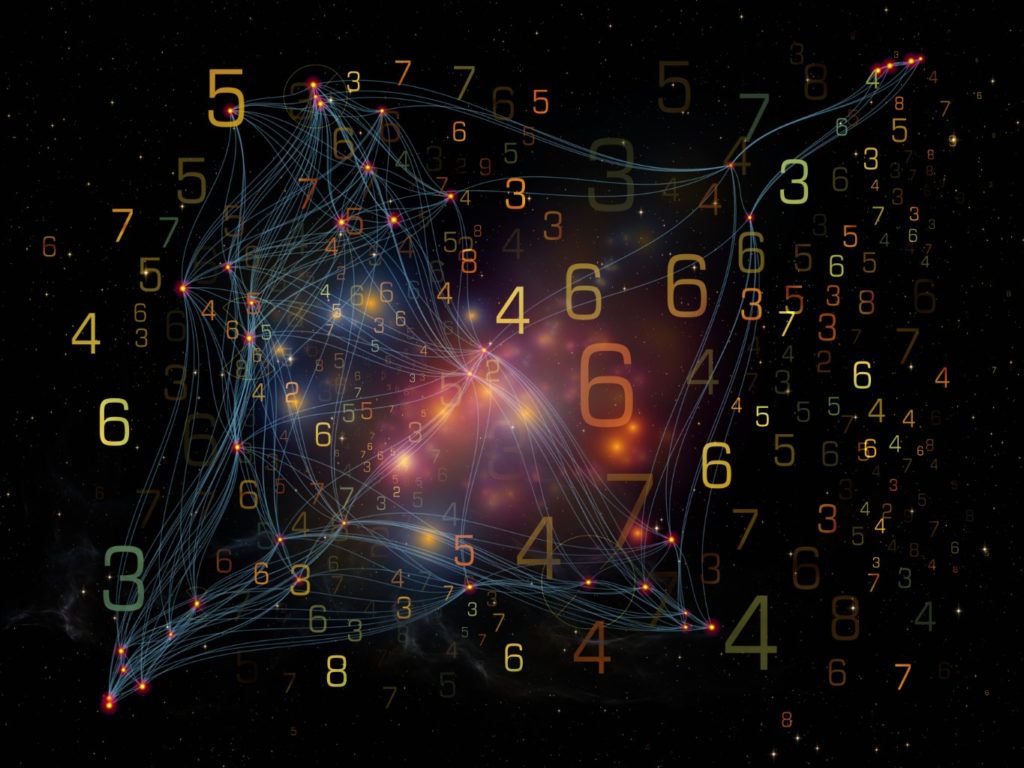In the realms of mathematics and computer science, Random Number Generator (RNG) hold a crucial role as indispensable tools that produce sequences of numbers void of any discernible pattern. This article takes a deep dive into the inner workings of RNGs, shedding light on their applications and the profound impact they exert on diverse industries.
RNGs serve as the very engines that drive statistical simulations, cryptography, and numerous other fields. Their ability to generate random numbers without predictability is of utmost importance in ensuring the precision and dependability of simulations. Within cryptography, RNGs furnish the necessary randomness for encryption keys, effectively thwarting malicious attempts to decipher sensitive information.
Moreover, the applications of RNGs span across a wide spectrum of industries, including gaming, scientific research, and financial modeling. They serve as the backbone for fair and unbiased outcomes in games of chance, contribute significantly to experimental design by randomly assigning treatments, and enable the realistic simulation of complex systems.

What is a Random Number Generator (RNG)?
A Random Number Generator (RNG) stands as a fundamental and versatile concept with numerous applications. It represents an algorithmic or device-driven mechanism capable of generating a sequence of numbers that exhibit the appearance of true randomness. The paramount feature of RNGs lies in their ability to produce numbers devoid of any recognizable pattern or predictability, rendering them indispensable for a myriad of purposes.
RNGs play a pivotal role in an array of fields, wielding particular significance in cryptography, computer simulations, and statistical analyses. These generators provide the essential ingredient of randomness, contributing to the robustness and security of encryption keys in cryptography. In the realm of computer simulations, RNGs ensure accurate and reliable results by introducing a vital element of unpredictability.
Moreover, RNGs find practical application in the vibrant world of online gambling, where they safeguard the integrity of games of chance. By generating unbiased and impartial outcomes, RNGs establish an environment of fairness, assuring players that the results are purely chance-driven.
The Importance of RNG
Random Number Generators (RNGs) serve as indispensable tools in a variety of fields, playing a vital role in ensuring fairness, security, and accuracy. Let’s explore some significant areas where RNGs are of paramount importance:
Gaming Industry and RNG
The gaming industry heavily relies on RNGs to maintain fairness and unpredictability in games of chance. Whether it’s determining the outcome of card games, rolling dice, or generating symbols on a slot machine, RNGs provide the crucial element of chance that keeps players engaged and entertained.
Cryptography and RNG
Randomness is a cornerstone in cryptographic systems to enhance security. Cryptographic RNGs generate unpredictable numbers used for key generation, encryption, and decryption processes. The strength and robustness of these cryptographic systems heavily depend on the quality of the random numbers produced by RNGs.
Statistical Simulations and RNG
Statistical simulations play a vital role in scientific research, finance, and engineering. RNGs are essential for modeling and replicating complex real-world scenarios, enabling researchers and analysts to study the behavior of systems and make well-informed decisions.
Monte Carlo Method and RNG
The Monte Carlo method, a powerful computational technique, relies on RNGs to approximate mathematical problems through repeated random sampling. This method finds wide application in various scientific disciplines, including physics, economics, and computer graphics, among others.
How RNG Work?
Random Number Generators (RNGs) employ diverse algorithms and techniques to generate random numbers. Two fundamental approaches exist in the realm of RNGs: Pseudo-random Number Generators (PRNGs) and True Random Number Generators (TRNGs).
Pseudo-random Number Generator (PRNG)
PRNGs are algorithms that utilize a seed value to produce a sequence of numbers that appears random. However, they are fundamentally deterministic, meaning that if given the same seed, they will generate the exact same sequence of numbers every time. The seed value serves as the initial input for the algorithm, and the generated sequence is derived from subsequent calculations. PRNGs are widely favored for their efficiency and ability to generate long sequences of seemingly random numbers with reproducible results.
True Random Number Generators (TRNGs)
In contrast to PRNGs, TRNGs rely on physical processes to generate random numbers. These processes involve capturing unpredictable events from the physical world, such as atmospheric noise, radioactive decay, or electronic noise, and converting them into random numbers. TRNGs harness the inherent randomness of these physical phenomena, resulting in a higher level of genuine unpredictability compared to PRNGs. However, TRNGs can be slower and more resource-intensive due to their dependence on external physical events.
How are RNG used in technology today?
Creating Strong Passwords with RNGs
Random Number Generators (RNGs) are sophisticated algorithms explicitly designed to produce sequences of numbers that are unpredictable and difficult to guess. Harnessing the power of RNGs is an excellent strategy for generating robust passwords that provide strong defense against unauthorized access.
When crafting passwords, there are several effective strategies for leveraging random number generators. One popular technique involves combining letters, numbers, and symbols in a way that obscures any recognizable pattern, making the password highly resilient to attacks.
Another widely used approach starts with a memorable word or phrase and then incorporates numbers or symbols by substituting some of the characters. This method ensures that the password remains both secure and easier to remember.
Whether you opt for these methods or explore other creative approaches, employing random number generators as the foundation of your password generation process is a prudent choice. By doing so, you can confidently create passwords that effectively safeguard your accounts and sensitive information from potential threats. Remember, strong and unique passwords are an essential line of defense in today’s digital landscape.
Securing Messages with Encrypted Codes
In the realm of encryption, random numbers play a pivotal role, serving as the fundamental building blocks for generating codes that scramble messages. This crucial scrambling process ensures that only the intended recipient possesses the means to decipher and read the message, safeguarding it from unauthorized access.
The implementation of a random number generator (RNG) can take various forms, including hardware and software solutions or leveraging natural phenomena like ambient noise or radioactive decay. For optimal security, employing a true random number generator is the preferred choice. However, such an approach can be both costly and time-consuming to implement.
In many encryption algorithms, utilizing true random number generators might not be feasible or practical due to resource constraints. In these cases, pseudorandom number generators step in as a viable alternative. Pseudorandom number generators produce sequences of numbers that appear to be random, even though they actually follow a predetermined pattern. While they may not offer the same level of security as true random number generators, pseudorandom number generators strike a balance between efficiency and practicality, making them a suitable choice for most encryption purposes.
By harnessing the power of random numbers, encryption techniques create a robust layer of protection for sensitive information, ensuring that messages remain confidential and accessible only to their intended recipients.
Enhancing Realism in Computer Simulations through RNG
Random Number Generators (RNGs) play a critical role in computer simulations, enabling the creation of data that closely replicates real-world behavior. In simulations involving particle motion, for instance, random numbers are essential in determining key parameters such as position, velocity, and direction for each individual particle. This infusion of randomness enhances the accuracy and realism of the simulation outcomes, mirroring the unpredictability inherent in the physical world.
The significance of random number generators becomes particularly pronounced when simulating complex systems characterized by inherent unpredictability, such as weather patterns or stock market behavior. In fact, they are often regarded as the “heart” of a simulation, for without their contribution, simulations would be rendered impractical or unfeasible. Random number generators empower researchers and analysts to explore a multitude of scenarios, allowing them to observe potential outcomes of intricate systems in a controlled and computationally efficient manner.
By leveraging RNGs, computer simulations achieve a high level of fidelity, enabling the study of complex phenomena with unprecedented precision. As a cornerstone of modern research and analysis, random number generators pave the way for insightful discoveries, driving progress in a wide range of fields, from weather forecasting and scientific research to financial modeling and engineering simulations.
Ensuring Fair Play in Online Casinos with RNGs
Online casinos offer the allure of traditional casino games with added convenience and accessibility. To uphold the same principles of fairness, a crucial element is employed: Random Number Generators (RNGs).
The Random Number Generator (RNG) is a sophisticated system designed to generate sequences of random numbers, which are then utilized to determine the outcomes of various casino games. Whether it’s a game of blackjack, where the RNG shuffles and deals cards from a virtual deck, or the spin of a roulette wheel, where the RNG determines the landing number, these generators play a vital role in maintaining impartiality and creating a level playing field for all players.
By incorporating RNGs, online casinos ensure that each player enjoys an equal and unbiased chance of winning. Furthermore, the use of RNGs guarantees that game elements, such as card dealing and roulette spins, occur fairly and without any potential bias or manipulation.
Reputable online casinos prioritize the implementation of RNGs to provide genuinely random and fair gaming experiences for their players. These RNGs not only contribute to the transparency and trustworthiness of online casino games but also ensure that the thrill and excitement of gambling are accompanied by a sense of integrity and trust in the virtual gaming environment.
Applications of RNGs
RNGs in Online Gaming
Online casinos rely on Random Number Generators (RNGs) to uphold the integrity and fairness of their games. By generating random outcomes for each bet or spin, RNGs prevent any manipulation or bias that could provide players with an unfair advantage. These sophisticated algorithms ensure that the results of online casino games, such as slot machines or card games, are genuinely random, providing a level playing field for all participants.
Loot Box Systems in Video Games
In the realm of video games, many titles feature loot box systems where players can acquire randomized virtual items. RNGs power these systems by determining the contents of each loot box. This element of unpredictability adds excitement and variety to the gameplay, as players never know what they will receive. RNGs play a crucial role in maintaining the integrity of loot box systems, ensuring that the distribution of rewards remains genuinely random.
RNGs in Cryptography
Cryptography heavily relies on RNGs to generate secure keys, initialization vectors, and nonces. Strong and unpredictable random numbers are indispensable in cryptographic algorithms to ensure the security and confidentiality of sensitive data. RNGs provide the essential randomness required to thwart any attempts at predicting or breaking encryption systems, bolstering data protection and privacy.
RNGs in Simulations and Modeling
Scientific simulations and modeling often necessitate the generation of random inputs or scenarios to study complex systems. RNGs are employed to produce random variables that accurately simulate real-world phenomena. Whether it’s simulating weather patterns, population dynamics, or financial markets, RNGs enable scientists and researchers to study and understand the behavior of intricate systems, shedding light on various phenomena and aiding in critical decision-making processes.
What benefits do RNGs provide?
Random Number Generators (RNGs) provide numerous benefits and serve as valuable tools across various fields. Let’s explore some of the key advantages offered by RNGs:
- Unpredictability: RNGs generate sequences of numbers that are inherently unpredictable and devoid of any recognizable pattern. This attribute is of paramount importance in cryptography, where random numbers are used to create encryption keys that are resistant to attacks and ensure data security.
- Fairness and Equity: In games of chance, gambling, and online casinos, RNGs play a pivotal role in determining random outcomes. By producing unbiased and random results, RNGs ensure fairness and equal opportunities for all participants, maintaining the integrity of the game and preventing any form of cheating or manipulation.
- Statistical Analysis: RNGs are instrumental in statistical simulations and data analysis. They enable researchers and analysts to replicate random events or generate random samples, facilitating the study of complex systems and making reliable statistical inferences. RNGs are crucial for statistical significance testing and hypothesis generation.
- Experimental Design: In scientific research and experiments, RNGs are employed to assign treatments or control groups randomly. This randomization process reduces the influence of confounding factors, leading to improved experimental validity and the generation of accurate research findings.
- Simulation and Modeling: RNGs play a pivotal role in computer simulations and modeling. They are used to generate random inputs or events within the simulated environment, enabling the study and understanding of complex systems such as weather patterns, financial markets, population dynamics, and more. RNG-driven simulations facilitate insights into the behavior of intricate systems and aid in making informed decisions.
FAQs
An RNG is a mathematical algorithm or device designed to produce sequences of numbers that appear to be random and lack any discernible pattern. RNGs are widely used in various applications, such as cryptography, gaming, simulations, and statistical analysis.
RNGs employ different algorithms and techniques to generate random numbers. They can be categorized into two main types: Pseudo-random Number Generators (PRNGs) and True Random Number Generators (TRNGs). PRNGs are deterministic and use a seed value to produce seemingly random sequences, while TRNGs rely on physical processes to generate true randomness.
In online gaming, RNGs ensure fairness and unpredictability in determining game outcomes. They are used in casino games, loot box systems, and other chance-based elements, providing equal opportunities for all players and maintaining the integrity of the gaming experience.
The security of cryptographic systems heavily relies on the quality of the RNG used. True Random Number Generators (TRNGs) are preferred for cryptographic applications due to their genuine unpredictability. However, well-designed and properly implemented Pseudo-random Number Generators (PRNGs) can also be secure if they use strong seed values and have sufficient entropy sources.
RNGs are essential for generating random inputs or events in scientific simulations. They enable researchers to study complex systems by replicating random scenarios, such as weather patterns, financial market fluctuations, or population dynamics. RNG-driven simulations allow for data analysis and predictive modeling.
Conclusion
Random Number Generators (RNGs) stand as indispensable pillars in the domains of mathematics, computer science, and various industries. Their capability to produce sequences of seemingly random numbers drives essential applications in gaming, cryptography, simulations, and statistical analysis. Understanding the inner workings and significance of RNGs provides valuable insights into the bedrock of modern computational processes and the critical role randomness plays across numerous fields.









